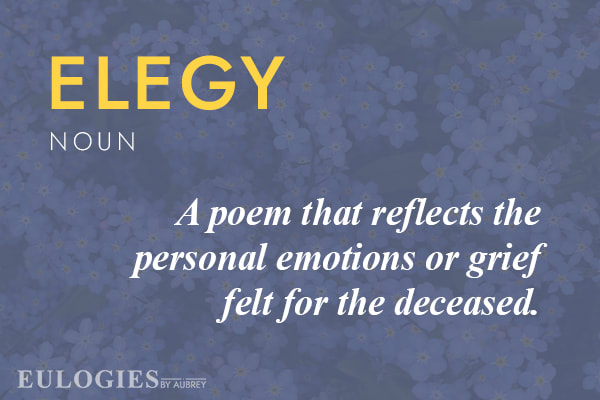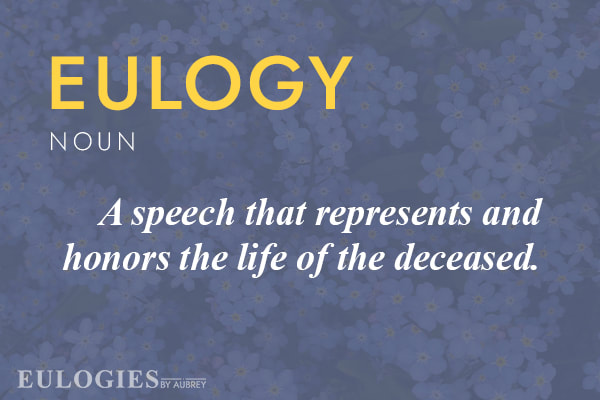|
Losing a loved one is a very personal experience. Each individual goes through and processes the grief differently. Throughout the history of grief, we've found ways to remember those who have passed away through eulogies and elegies.
Two beautiful traditions that often come up in this context are elegies and eulogies. While their names might sound similar, they serve distinct purposes while offering unique ways to express grief and celebrate a life well-lived. Let's explore the unique roles of each and how you can use them! Elegy vs. Eulogy – What Are They?
Elegy Definition: An elegy is a poem that expresses sorrow and reflection on the death of a loved one.
It's a heartfelt way for the writer to process their grief and share their personal memories of the deceased. Elegies often have a melancholic or reflective tone, allowing the writer to explore their emotions and the impact of the loss. Think of famous works like Alfred Lord Tennyson's "In Memoriam A.H.H." or W.H. Auden's "Funeral Blues" – these are powerful examples of how elegies beautifully capture the depth of grief and love.
Eulogy Definition: A eulogy, on the other hand, is a spoken speech delivered at a funeral or memorial service.
Unlike an elegy, a eulogy focuses on celebrating the life of the deceased. It highlights their achievements, personality traits, and the positive impact they had on others. This is one of the most common form of speech at a funeral. Eulogies are a chance for friends, family, and loved ones to come together, share cherished memories, and express their gratitude for the life lived. When to Use an Elegy
Regardless of it being kept in a journal or read aloud at a funeral, elegies are a great way to express your personal emotions and memories of the deceased.
Here are some ideal situations for an elegy:
This 1865 poem by Walt Whitman is a great example of an elegy. It was written to express grief after the loss of President Abraham Lincoln.
When to Use a Eulogy
Eulogies are ideal for public speeches that celebrate the life of the beloved.
These are the most common moments for a eulogy:
If you would like help writing a eulogy, Eulogies by Aubrey provides a professional eulogy speech service to ease the burden of writing a speech so you can focus on what is important.
For those with financial stresses, Aubrey also offers a free eulogy template. If you have any questions, please email Aubrey or view her FAQ page. She looks forward to easing your burden.
0 Comments
Leave a Reply. |
Archives
May 2024
Categories
All
|



 RSS Feed
RSS Feed
